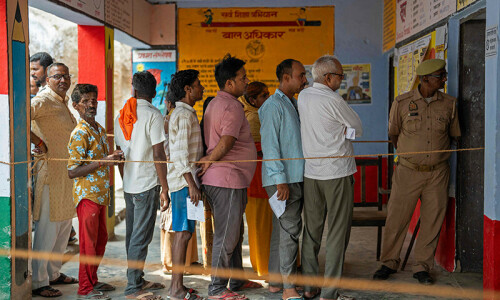ISLAMABAD: Strongly opposing the petroleum pricing deregulation model suggested by the Oil and Gas Regulatory Authority (Ogra), the oil refineries have started shutting down their refining units due to storage constraints caused by declining sales of domestic products and the rising influx of smuggled products throughout the country.
“Why would oil marketing companies (OMCs) lift oil product from refineries, involving a substantial impact of taxes, when they can access cheaper product in the black market?” questioned an official representing the refining sector. He added that Ogra had proposed doing away with requirement of uplifting domestic products from refineries, giving companies the freedom to source their products at their own will on commercial basis.
The current situation is an eye-opener even before the pricing deregulation is allowed, he said, adding that availability of smuggled products, once limited to border areas, has now expanded across the country, forcing refineries to drastically cut down their production.
“Attock Refinery has been forced to shut down its main distillation unit (of 32,000 barrels per day), reducing its capacity to only 33pc on Monday,” the official said.
Say shutting down units due to storage constraints, low sales and smuggling surge
“The ongoing rampant smuggling and now proposals of oil pricing deregulation without consultation of all stake stakeholders may jeopardise refineries’ upgradation plans, which were expected to bring in $5-6 billion investment following the recent approval of Refineries Upgradation Policy,” warned all five refineries in the country.
In a letter, the refineries expressed “deep concern” over Ogra’s recommendation to disband the first upliftment priority principle of local product for providing “level playing field to OMCs for negotiating ex-refinery price”. They also protested Ogra’s recommendation that “OMCs should be given the choice to efficiently source their supplies locally or from the international market in complete negation of the laid down principle” as required under Rule 35(g) of Pakistan Oil (Refining, Blending, Transportation, Storage and Marketing) Rules 2016 (OGRA Rules).
The protest letter stated that the refineries were strategic assets of the country, and their sustainability and continuity were essential for the prosperity and economic development of Pakistan.
“Local refineries are the backbone of industrial development and are intrinsically connected to the defense and energy security needs of the country. Any blind reliance on completely imported fuels will not only increase the risk to the country’s energy supply chain but also has the potential to result in disastrous consequences,” noted the letter, jointly written by chief executives of Attock, Cynergico, National, Pak-Arab, and Pakistan Refineries.
The refineries’ $5-6bn upgradation plan would not only result in cleaner, environment-friendly fuels of Euro-V specifications but would also lead to savings of precious foreign exchange by substantially increasing local production of diesel and petrol.
“Hence, it would be most unfortunate if the planned upgradation projects are abandoned by the refineries due to these irrational recommendations,” the refineries said, adding that the deregulation of the inland freight equalisation margin (IFEM) would also impact the adjustment of customs duty paid by the refineries on the import of crude oil, subsequently placing importing refineries at a huge disadvantage.
They said the refining sector was already struggling to operate at optimum levels due to the menace of smuggled inferior products in the country and would further get a major set-back from Ogra proposed model.
They said the deregulation of petroleum products was a complex and critical issue and local refineries being major stakeholders must be involved and consulted before moving forward. The sector required pragmatic and supporting measures rather than suggesting ways that if implemented would result in permanent closure of refineries.
Published in Dawn, April 23nd, 2024














































Dear visitor, the comments section is undergoing an overhaul and will return soon.